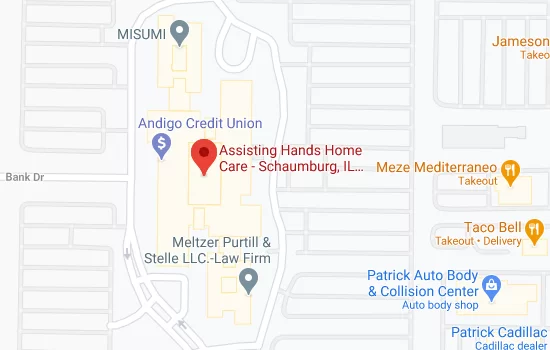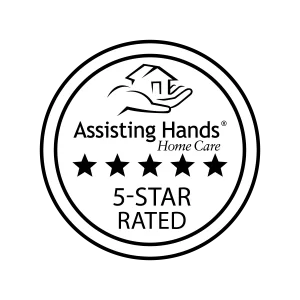
A power of attorney should be a part of every senior’s preparation for the future. This document informs family members about the elderly person’s wishes in the event the latter becomes incapacitated. Here’s what caregivers and their aging loved ones should know about power of attorney.
Aging comes with a host of health and financial challenges. If an older person becomes so ill that they are no longer able to manage their own affairs, a document known as a power of attorney becomes crucial to helping family members fulfill their loved ones wishes.
What is power of attorney?
A power of attorney is a legal document that grants another individual the right to make decisions on behalf of the senior. The older adult, in this case, is called the principal. The person acting on behalf of the aging person is known as the agent or attorney-in-fact.
Can the senior still make decisions?
If the senior assigns a power of attorney to allow another to manage their affairs on their behalf, they are still permitted to make decisions if they are not deemed mentally incapacitated. The senior can also disagree with the agent—and the former’s decision takes precedence.
Can the agent make changes to the POA?
The person designated to make decisions on the senior’s behalf cannot create or modify the power of attorney. Additionally, the agent cannot vote on the senior’s behalf during public elections. Transferring the POA to another individual is not permitted without the senior’s consent.
Is the agent considered a fiduciary?
The agent is obligated to act in the best interests of the parent, not themselves. In other words, when managing the older adult’s personal money or property, they must act as fiduciaries. The agent manages bills and bank accounts, makes investments and pays taxes, among other duties.
While acting as a fiduciary, the agent must never mix their personal affairs with the senior’s. Confusing records can lead to legal consequences from government agencies or even the police. The agent can be subject to penalties when they fail to keep accurate and complete records.
What are the different types of power of attorney?
-
General Power of Attorney
Five different types of power of attorney bestow various powers on the agent. A general power of attorney provides the agent with a broad range of rights. It allows them to manage financial accounts, handle real estate transactions, make investment decisions, and enter contracts.
-
Medical Power of Attorney
A medical power of attorney (also known as a health care proxy) gives the agent the right to make decisions about the senior’s health care, like surgeries, medications, treatments, and life-sustaining interventions. The medical power of attorney is common for later-life planning.
-
Springing Power of Attorney
A type of power of attorney that allows the senior to stay in control while they are of sound mind is the springing POA. Once the older person becomes incapacitated, the springing power of attorney “springs” into action and becomes effective.
-
Durable Power of Attorney
A fourth type of power of attorney is the durable POA, which lasts even if the senior becomes incapacitated. The agent helps with estate planning and decision-making during medical emergencies. Unless specified otherwise, this power of attorney goes into effect the day it is signed.
-
Limited Power of Attorney
A restrictive type of power of attorney is the limited power of attorney. This type of POA limits the number of decisions the agent can make. For example, the senior can specify in the document that the agent only has decision-making duties about selling the house or paying bills.
When should a senior create a power of attorney?
The best time to create a power of attorney is before it is needed. The document is valuable when the elderly individual has a chronic health issue, such as diabetes, dementia, or a terminal illness. If the senior has trouble paying bills, a power of attorney is useful.
But financial and health issues aren’t the only reasons to establish a power of attorney. A senior who travels out of town frequently may wish to create a power of attorney to permit the agent to sign papers so that returning home is unnecessary. A POA can be a convenience.
Creating a power of attorney in advance offers a number of advantages. When a senior undergoes a health crisis and a power of attorney is in place, families feel less stress and pressure related to decision-making, as they understand the senior’s wishes.
Handing over decision-making to another person can feel disempowering. However, it’s important for families to have the discussion about preparing a power of attorney for the future. Without a power of attorney, the future can be uncertain with unclear direction as to what to do.

Preparing for the future includes not only creating a power of attorney but exploring in-home care options. Assisting Hands Home Care offers quality senior care services that give older adults greater independence and the desirable opportunity to age in place.
We offer a range of senior care options, including compassionate memory care. Dementia care delivered at home is recommended for seniors with dementia, as it allows them to remain in a familiar setting. Memory caregivers are trained to manage a range of dementia symptoms.
If the senior wanders, we guide them to safety. Caregivers continually monitor the dementia patient, never leaving them alone at home. Agitation is reduced when we employ distraction techniques. We also provide discreet help with incontinence issues, which arise in the later stages of dementia.
Memory care includes healthy meal preparation, light housekeeping, grocery shopping, and medication reminders. We provide transportation and escort to doctors’ offices. Our pleasant companionship, conversations, outings, and games relieve loneliness and keep elderly care recipients socially engaged, stimulated, and alert.
If your aging loved one receives a dementia diagnosis, encourage them to create a power of attorney. Also consider Assisting Hands Home Care in Schaumburg, Illinois.
Schedule your free in-home consult today at (224) 258-0736 and learn how our reliable dementia care can enhance their quality of life.

Daniela has master’s degree in electronic engineering with a pedagogical specialty and master’s degree in marketing management.
After completing her schooling, Daniela worked at a hospital for 6 years as the Director of Business Marketing Development and Public Relations.
Starting Assisting Hands Home Care
Daniela spent more than 14 years as the Assistant Vice President of a national bank before becoming a co-owner of Assisting Hands Home Care of Schaumburg.
Her background in public relations and marketing along with her personal experience caring for her mother motivates Daniela to be passionate about helping families in the Schaumburg, IL area find exceptional caregiving services for their elderly loved ones.
Besides providing home care, Daniela enjoys giving back to the community in her free time, supporting various events at St. Peter Parish in Geneva, IL such as fundraising, school projects, charity events, and more. She also enjoys volunteering for the Humanitarian Service Project in Carol Stream, IL. This organization provides seniors with meals as well as food and supplies for children living in poverty.





















